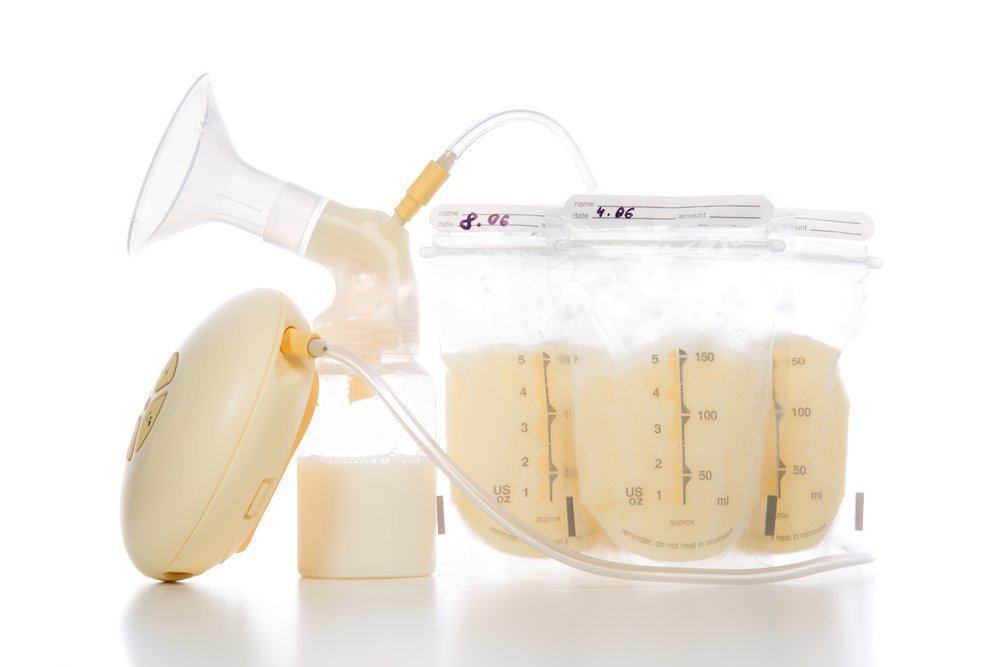Contents:
- Medical Video: Pregnancy FAQs : How to Treat a Sinus Infection During Pregnancy
- What can you do to prevent flu and cough while pregnant?
- If you have had the flu and cough, how do you deal with it?
- 1. Get plenty of rest
- 2. Consume plenty of fluids
- 3. Eat well
- 4. Exercise regularly
- 5. Avoid stress
- 6. Relieves symptoms of flu and cough
- Can you take cold medicine while pregnant?
Medical Video: Pregnancy FAQs : How to Treat a Sinus Infection During Pregnancy
What if you have flu and cough while pregnant? Is this risky to the fetus?
Flu and cough easily attack anyone, including mothers who are pregnant. There are more than 200 viruses spread in the air which can cause the body to experience the flu. When you are pregnant, there are various changes in body functions, including the immune system. This change allows you to catch flu and cough when you are pregnant. If what you experience is a symptom of common cold and cough, it will not cause any adverse effects on your fetus. However, it is important to make sure that the flu and cough do not get worse and can adversely affect the fetus.
What can you do to prevent flu and cough while pregnant?
According to the Cleveland Clinic, there is a decrease in immunity in pregnant women. This happens so that the mother's body system does not reject the developing fetus. Therefore, pregnant women are susceptible to viral and bacterial infections, including flu and coughing. Prevention can be done one of them by injecting flu vaccines to reduce the risk of getting the flu virus. It is known that giving flu vaccines to pregnant women can help protect the mother and baby up to six months after delivery. So, it is important for pregnant women to vaccinate during pregnancy to prevent infections due to viruses and bacteria.
In addition, clean behaviors that are applied daily can also prevent you from getting the flu, such as frequent hand washing with soap and water, getting enough sleep, eating healthy foods and avoiding food or drinks that are not clean, avoiding contact or being close to family / colleagues who are experiencing pain.
If you have had the flu and cough, how do you deal with it?
1. Get plenty of rest
Rest your body by taking a nap, getting enough sleep at night, and not doing too much heavy physical activity. This method is one of the most able ways to increase immunity. In addition, by resting, you give your body time to indicate the situation.
2. Consume plenty of fluids
You should meet your daily fluid needs, by drinking mineral water, fruit juice, or other healthy drinks. Try drinks that are natural, not packaging.
3. Eat well
The purpose of eating well is to fulfill your needs in one day. If the symptoms of flu and cough you experience make you not want to eat, then you can eat a small but frequent portion. Eat healthy foods and meet the principles of balanced nutrition, and ensure cleanliness.
4. Exercise regularly
Pregnancy does not mean that you cannot exercise regularly. Sports can still be undertaken by pregnant women, exercise that can be done is yoga, swimming, and relaxing walks. Besides being good at maintaining a body weight that might keep changing during pregnancy, exercise can also boost the immune system and prevent the body from getting an infection.
5. Avoid stress
There have been many studies that show that stress is associated with a decrease in body condition and the immune system. Therefore, to avoid further decreasing the immune system of pregnant women, then you should do various things that can calm your body and mind and relax.
6. Relieves symptoms of flu and cough
The common cold symptoms are congestion and the throat feels bad. If you experience a blocked nose, you can put an air humidifier (humidifier) around you, use nasal breathing strip namely breathing apparatus in the form of strips to make it easier for you to breathe, and raise the pillow when you sleep. As for relieving your throat, you can eat warm foods or drinks, such as eating soup or drinking warm tea. This can stimulate the production of mucus and saliva, so it can relieve a blocked throat and nose. Or you can add lemon or honey to warm tea, which can remove the unpleasant taste in the throat and make you sleep better.
Can you take cold medicine while pregnant?
According to the University of Michigan Health System, you should avoid consuming various drugs in the first 12 weeks of pregnancy, because at that time there is a process of forming vital organs in the fetus. Many doctors recommend better taking drugs after 28 weeks of pregnancy. However, this should be discussed further to the expert doctor.
In addition, you should avoid drugs that have a function at once and can treat various symptoms, such as ibuprofen, codeine, bactrim, naproxen, and aspirin. These drugs are usually easily found in stalls or around you, so if the symptoms are getting worse, it is better to see a doctor to avoid other complications.
READ ALSO
- Why is a Short-bodied Pregnant Woman Recommended by Caesarean Section?
- Three Embarrassing Things That Often Occur During Pregnancy
- List of Nutrition Needed When Planning a Pregnancy












